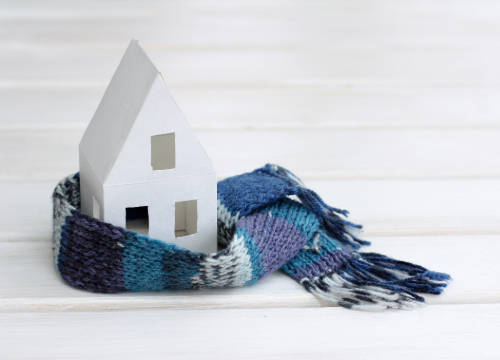Cybercrime is increasing - that’s a fact. In 2017, 1.14 million New Zealanders fell victim to some sort of cybercrime (Norton Cybersecurity Insights Report 2017 Global Report). To help keep you safe online, we’ve pulled together some great tips to help reduce the likelihood of you getting targeted by a cybercriminal.
Back up your data
One of the most important things you can do is to back up your data in different places. This includes your most important documents, pictures, and anything that you have stored online that is important or of sentimental value to you.
If you are unlucky enough to get targeted by cybercriminal, then at least you won’t lose any of your important data as you have it backed up in different locations.
Remember you need to trust who you are backing up your data with. Some of the best ways to back up your data are:
- Getting an external hard-drive and do an offline or ‘cold’ back up. This simply means that your data is offline and is one of the safest ways to keep your data safe. This will need to be physically secured.
- Signing up to a trusted cloud-based service and back up your data in the cloud. There are many different cloud solutions, such as Dropbox, Apple iCloud and Google Drive. Do some research and find the one that will suit you best. Make sure you understand if they are going to use your data.
- Making sure you do regular backups, for example weekly.
Keep your apps and systems up to date
Yes, it can be a hassle to update your operating system and apps - but it’s extremely important to keep your systems up to date as they usually contain updates to fix vulnerabilities that hackers look to exploit. According to US-CERT, 85% of cyber-attacks are preventable by making sure you have the latest operating system and app updates on your devices.
So next time your phone, tablet, computer or laptop notifies you that it needs to update, don’t ignore it! In fact, you can set your devices to update automatically, so you don’t have to worry about it.
Don’t use the same password for all your accounts
Did you know that 20% of cybercrime victims globally use the same password across all their online accounts, or that 58% of cybercrime victims had shared at least one of their passwords with others? The problem with using the same password for all of your accounts is that if a hacker gets access to one of your passwords, they could then have access to all of your online accounts, your banking app, and your social media accounts.
Here are some tips on creating a good password:
- Try to use a different password for each site you log into.
- Use a reputable secure password manager - this will store and manage your passwords for you. Then the password manager will be the only password you need to remember.
- Aim for passwords of 8 characters or more, and don’t forget to use numbers, letters and symbols in them to make them harder to guess.
- Try using an obscure passphrase instead of a password. For example, ‘drink8Fish$sky!beans’ would be a better password than your pet’s name and some numbers.
- Don’t write down or share your password with anyone - not even your parents, partner or kids. If you have young ones and want to make sure you know their password, make it something different to your own.
Use two-factor authentication
This is another great way to protect yourself online. Two-factor, or multiple-factor, authentication simply means that you can have a code sent to you every time you log in, or when you log in to a new device and you’d have to use that code to be able to complete the login. This will mean that if someone attempts to hack into your accounts, they won’t be able to log in without the code that was sent to your phone.
Be cautious when using untrusted networks and free WiFi
When you use untrusted networks, or free WiFi, you’re opening yourself up for other people to see what you’re doing online. You’re also at risk from people ‘shoulder surfing’ in public areas, meaning people will try and look over your shoulder to see your login details to use them later.
- Never do online shopping or internet banking when using an Internet kiosk.
- If you have to check your email from a kiosk or unfamiliar device, make sure you have two-factor authentication on first.
- Use your own device where ever possible, and not someone else’s.
Install antivirus and scan regularly
Antivirus software will help detect and remove malware (viruses), so if you don’t already have one installed, make sure you invest in one soon. If you use Microsoft Windows 7 or later, then you should have a free antivirus already installed called Windows Defender.
If you don’t already have an antivirus downloaded, make sure you select one from a well-known, trusted company, like Norton, and don’t just download a free one online. Some of the free ones you see advertised online are fake, and can actually download malware or adware on your computer, which is the opposite of what you want.
Be smart about what you say and do on social media
We live in a world where it’s normal to be sharing our entire life on social media, but the things you post can be used to steal your identify or hack into your online accounts. Everyone knows your pet’s name, where and when you went on your last holiday, your birthday, what school you went to, where you work and more.
- Check your privacy controls on your social media account and set them up so only your friends and family can see your full details or keep them completely private.
- Don’t share too much personal information.
- And a tip around passwords - if you share a photo of your pet on Facebook, make sure your password isn’t your pet’s name.
Don’t give out your personal information
Scams, fraud and phishing emails are very sophisticated these days, so it’s important to be very careful whenever we give out our personal information online. The best thing you can do is to keep yourself aware so you can work out if it’s a genuine request from a genuine company.
- Before giving out any information, check you know the company will contact you to obtain your personal info, and know what info they’ll ask for.
- Ask if you’re not sure why they’re asking for this information. Businesses are legally obliged to only ask for information they need.
- If you’re suspicious or not comfortable giving out your personal or financial details online, then simply look up the company and call them. This way you can also validate any email they have sent.
Check your bank statements
If you keep a close eye on your accounts, you’ll notice pretty quickly if someone gains access to your bank accounts. If you’re not sure about a particular transaction, call your bank immediately and do some investigations.
It also pays not to save your credit card information on those online store sites. If someone gains access to your account, they have your credit card information at their fingertips and could go on a shopping spree.
Get a regular credit check
Keeping an eye on your credit report will help you see if anyone has gotten access to your personal information to obtain loans or credit for big purchases like a car. Often people will first hear about this when they get credit declined, but if you keep a regular eye on your credit report, then you’ll be able to catch this out much sooner.
There we go, a quick start guide to keeping yourself safe online. There are so many more things you can do to keep yourself and your loved ones safe online. If you want to find out more, check out our other blog posts below or check out NZ CERT and Netsafe for more information.
References:
http://now.symassets.com/content/dam/norton/global/pdfs/norton_cybersecurity_insights/NCSIR-global-results-US.pdf
https://www.cert.govt.nz/businesses-and-individuals/guides/getting-started-with-cyber-security/get-started-cyber-security/
You might also like...
-
 December 2024Lifestyle Blog | State Insurance
December 2024Lifestyle Blog | State InsuranceSurviving the holidays
-
 September 2024Lifestyle Blog | State Insurance
September 2024Lifestyle Blog | State InsuranceSpring prep your home and garden.
-
 June 2024Lifestyle Blog | State Insurance
June 2024Lifestyle Blog | State InsurancePreparing your home for winter
